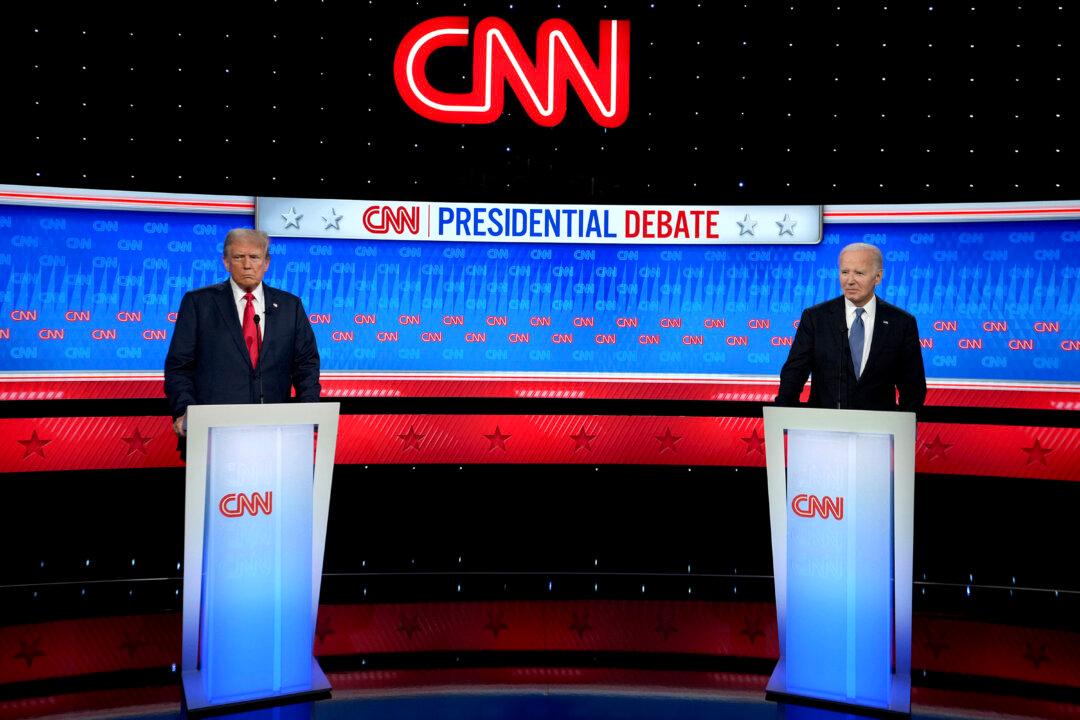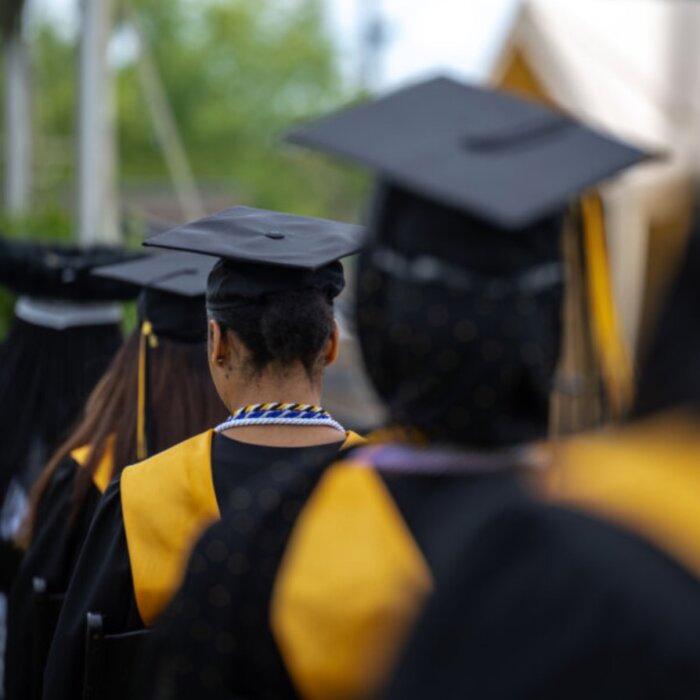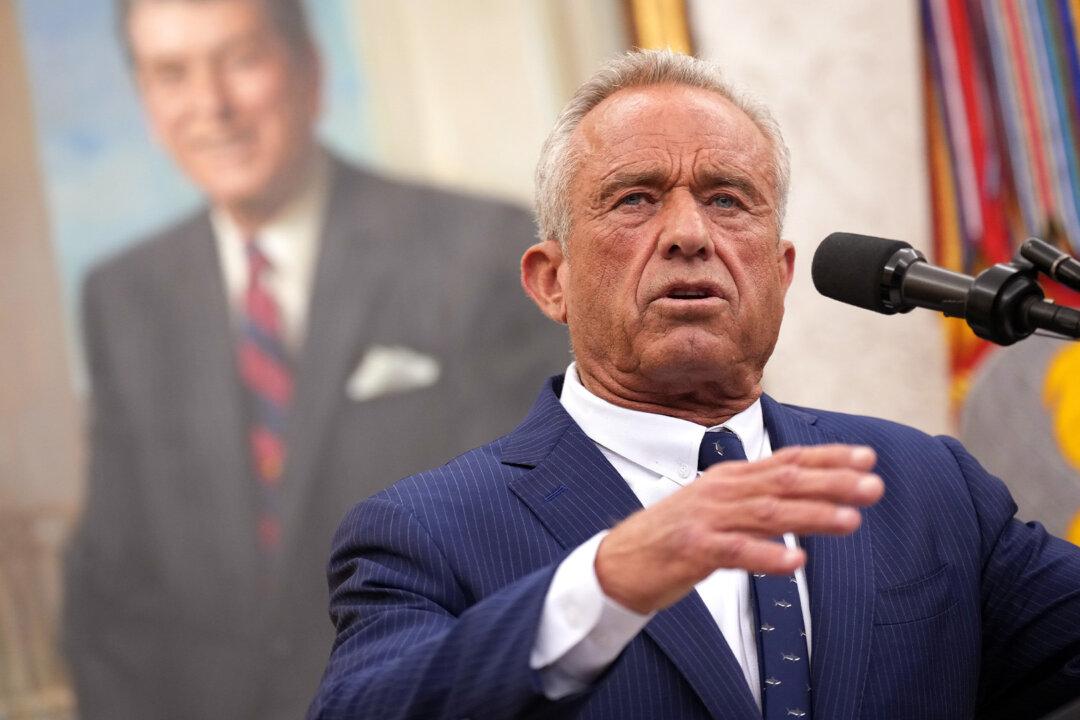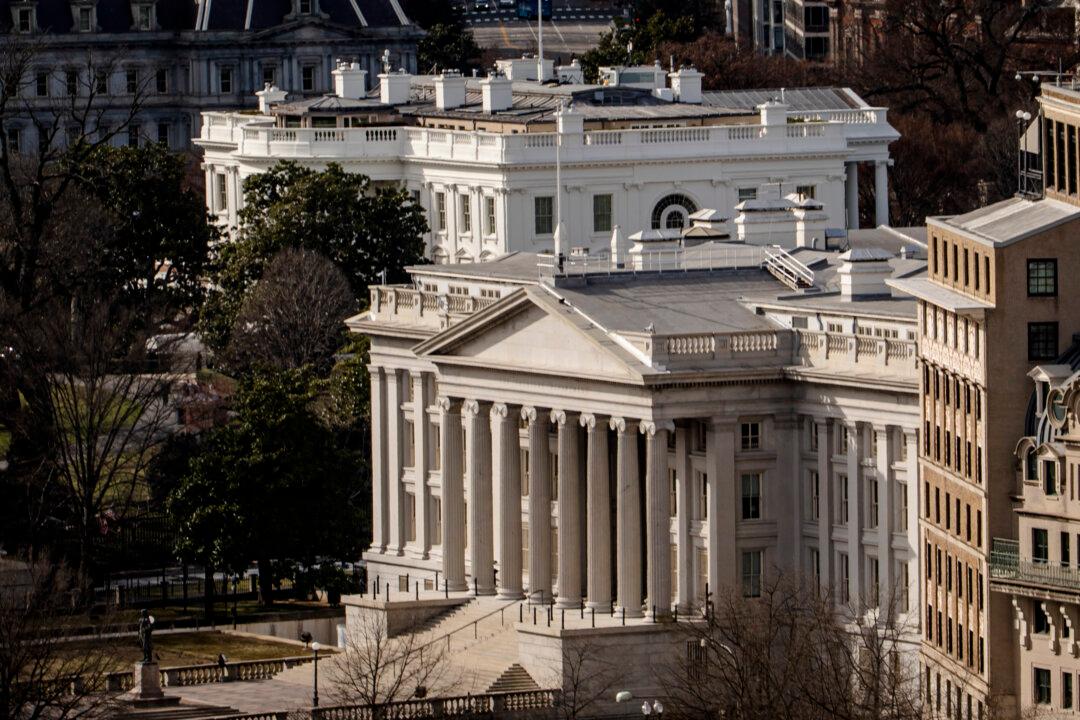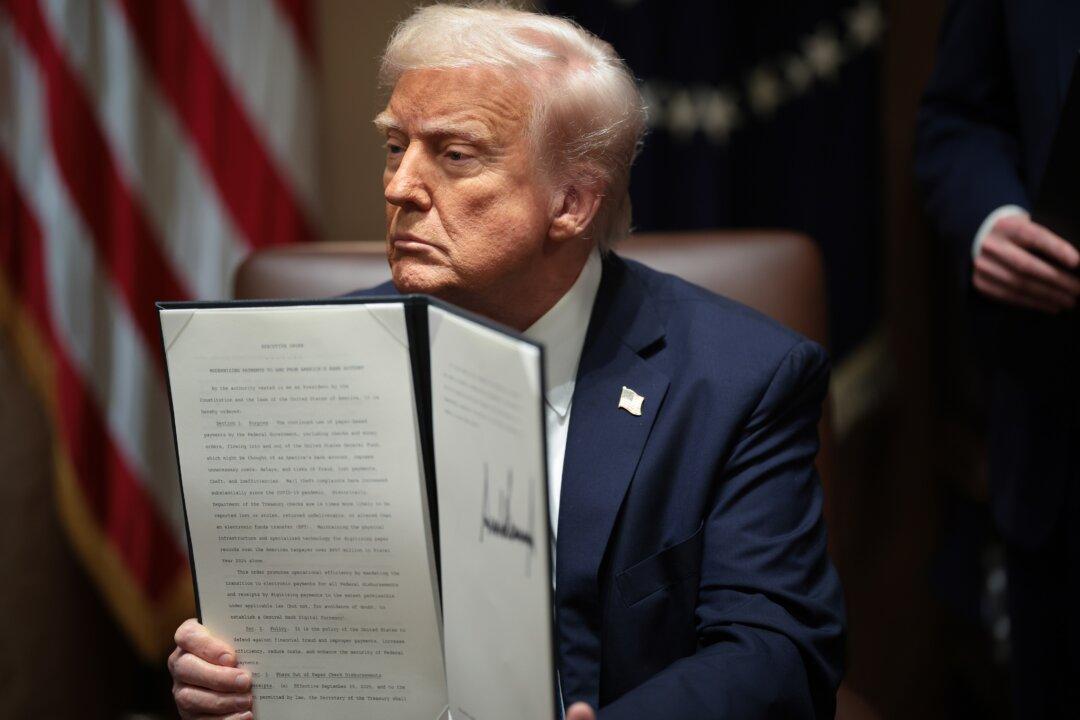Good morning, and welcome to The Epoch Times News Brief for Friday, June 28, 2024. I’m Bill Thomas, and we’re glad you’re here because we have some very important stories to get to.
All eyes were on the first presidential debate last night, and we’ve got the highlights! A Supreme Court justice says the court is shirking its duty, and the high court is also pausing a critical environmental rule issued by the federal government. The State Department is shining a light on Beijing’s coercion against a performing arts group, and another ruling from the high court goes against the Securities and Exchange Commission.
Biden, Trump Spar in Heated Debate
Critical topics of concern to all of us were discussed by both President Joe Biden and former President Donald Trump, and as both men took to the stage, there was no handshake.The two presidents went head-to-head in a debate that focused in large part on the economy. President Biden defended his record, saying that he inherited an economy in freefall due to the pandemic and highlighted job creation during his presidency. Former President Trump touted his 2017 tax cuts and energy policies that improved the economy prior to COVID-19.
The candidates also discussed tariffs on China and their impact on prices. Former President Trump defended his tariff policy, stating that it would force countries like China to pay the United States and reduce the deficit, while President Biden raised concerns about the tariffs and their potential for increasing prices for consumers.
The topic of abortion sparked a major difference of opinion between the candidates. Former President Trump supported exceptions for incest, rape, and the life of the mother, while President Biden stated that his administration was not in favor of late-term abortion.
Border security was another point of contention. President Biden highlighted the endorsement of his border security legislation by the Border Patrol union and criticized the family separation policy under Trump. The former president argued that his administration had the safest border in history and criticized President Biden for reversing those policies.
Other topics discussed included improving veterans’ access to medical care, the war in Ukraine, the conflict between Israel and Hamas, the events of Jan. 6 at the U.S. Capitol, progress for black Americans, and Social Security solvency.
In their closing statements, President Biden criticized former President Trump’s handling of the economy, tax system, and tariffs, while Trump portrayed Biden as a complainer and highlighted the chaos at the southern border.
Justice Alito Dissent Says Majority ‘Shirks’ Duty in Free Speech Case
Justice Samuel Alito says the high court should not have rejected a case that he describes as one of the most important free speech cases to reach the court in years, and the case in question is Murthy v. Missouri.He was joined by Justices Neil Gorsuch and Clarence Thomas in dissenting from the majority decision, while the remaining six justices held that the state and individual plaintiffs involved lacked standing to bring the speech-related case to the court.
The plaintiffs had claimed, among other things, that the Biden administration illegally coerced social media platforms to moderate certain election-related content and posts related to COVID-19.
In his dissenting opinion, Justice Alito wrote there was more than sufficient evidence that one of the plaintiffs had standing to sue and that obligated the high court to take up the case. He also brought up communications between the Biden administration and Facebook, citing Facebook changing its policies due to criticism from White House officials.
The justice called the actions of Biden administration officials blatantly unconstitutional.
The dissent also warned that the majority, whose opinion was written by Justice Amy Coney Barrett, sent a message to government officials that if a coercive campaign is carried out with enough sophistication, it may get by.
Supreme Court Pauses EPA’s ‘Good Neighbor’ Rule That Cracks Down on Smog
With a vote of 5–4, the Supreme Court is pausing the Environmental Protection Agency’s (EPA) “good neighbor” rule that cracks down on states whose industries are believed to be contributing to smog.The case is Ohio v. EPA.
It was brought to the court by a coalition of states, led by Ohio, arguing that the regulation was costly and could lead to blackouts. The states say that the EPA’s plan is an illegal overreach that undermines the principles of the federal Clean Air Act, which allows states leeway to propose their own air pollution control measures.
On the other hand, the EPA said the rule was urgently needed to assist in the fight against air pollution.
The justices ruled that the emissions-reduction standards, established by a federal plan, would probably cause irreversible harm to several of the affected states, so they stayed the plan pending a review by the U.S. Court of Appeals for the D.C. Circuit. You should know that the D.C. court had previously declined to stay the Good Neighbor Plan while litigation was proceeding.
Interesting to note that in recent years, the Supreme Court hasn’t sided with the EPA in a number of recent legal battles.
Right now, the so-called good neighbor rule is reportedly in effect in 11 states, and the courts have blocked it in 12 states.
If there’s one thing that we can all agree on, it’s that we all want clean air.
US Report Spotlights CCP’s Coercion Against Shen Yun
The State Department is highlighting Beijing’s persistent efforts to censor Shen Yun Performing Arts. They’re a New York-based arts group that tours worldwide, featuring traditional Chinese culture while highlighting the ongoing human rights abuses in China.The State Department’s annual religious freedom report documents the Chinese Communist Party’s (CCP) efforts in pressuring worldwide venues to refuse to host or cancel already scheduled performances by Shen Yun. “Many of the performers are Falun Gong practitioners,” the report states, adding that “some dances portray present-day religious persecution of Falun Gong practitioners in China.”
Shen Yun officials also say several venues have backed out at the last minute after receiving letters from Chinese officials threatening their countries’ economic interests.
The CCP, back in 1999, declared Falun Gong practitioners a “top enemy,” and vowed to eliminate the practice from China by arresting and torturing members.
So you know, Falun Gong is a spiritual practice involving both meditation and teachings based on the principles of truthfulness, compassion, and tolerance.
Shen Yun’s mission, which is to showcase China before communism, has been a target for the regime since its founding in 2006. During global tours in more than 20 countries, the company has suffered incidents of sabotage, including damage to its tour buses.
Interesting to note that the CCP’s coercive tactics have been somewhat effective in South Korea, a country that counts China as its biggest trading partner.
Supreme Court Limits SEC’s Enforcement Powers
The high court just ruled against the Securities and Exchange Commission’s (SEC) use of in-house administrative courts in the case SEC v. Jarkesy.The 6–3 decision held that defendants who face civil penalties must receive a jury trial under the Seventh Amendment of the Constitution.
The case challenged the SEC’s power when it penalized George Jarkesy for violating securities fraud law and it imposed a civil penalty of $300,000. He challenged the SEC courts for their lack of juries and for allegedly not receiving proper authorization from Congress.
Chief Justice Roberts, who wrote the majority opinion, said a defendant facing a fraud suit has the right to be tried by a jury of his peers before a neutral adjudicator, saying that Mr. Jarkesy, an investment adviser, and his firm were entitled to a jury trial.
Justice Gorsuch issued a concurrence that criticized the SEC’s in-house tribunals, comparing them to British colonial officials and arguing they stripped defendants of due process.
Mr. Jarkesy called the ruling a great day for the Constitution, for the legal process, and for the rule of law.
Looks like our time is just about up for today, so let’s call it a wrap for the Friday edition of The Epoch Times News Brief.
And if you have just a drop of free time today, we hope you’ll tell some folks you know about our program as we’re always trying to grow the ever-expanding News Brief Family. Word of mouth is the best advertising we can hope for, and thanks for spreading the message.
*(Don’t forget the News Brief Motto): We’re portable, affordable, and we’re always on-demand.
And finally, as we do each and every day on this program, we wrap things up with a very “notable” quote.
It was everyone’s favorite neighbor Fred Rogers—“Mr. Rogers”—who said: “There are three ways to ultimate success: The first way is to be kind. The second way is to be kind. The third way is to be kind.”
One of the greatest TV shows of all time, “Mister Rogers’ Neighborhood,” ran from 1968 to 2001, and it will live on in reruns forever and ever!
The Epoch Times News Brief is written by Sharon Reardon with production assistance by Faye, Clare, and a number of behind-the-scenes associates.
For all of us here at The Epoch Times News Brief, I’m Bill Thomas, and thanks a million for spending even a small portion of your Friday with us. Enjoy the rest of your day, and we’ll see you right back here tomorrow for the Saturday edition (the weekend edition) of The Epoch Times News Brief! Have an amazing day today, and bye for now.
